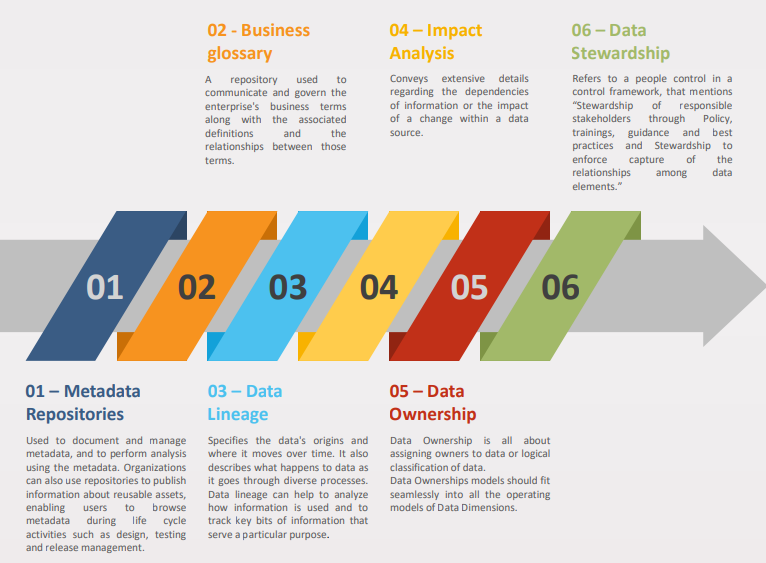
A service set-up is very crucial in an organization that includes defining what governance means, an operating model, policy, Governance processes, Organizational Model as well as a ownership and stewardship model
A data management strategy defines the approach to apply existing or new capabilities in an organization to reach the organizational goals and divisional objectives. A strategy can be captured in a strategic roadmap, operational roadmap, product roadmap, business case or similar artifacts.
Every data management activity, such as data quality assessment, is an enabler, which, put simply, is a new or an improved capability made available to the organization to fulfill a part or need. These capabilities need to be formalized and Governed using a right operating model.
A well-defined operating model plays a vital role in achieving expected business benefits. explore The choices of centralized and de-centralized models arise from the perspectives of the benefits and readiness in the organization.
The values and beliefs shared across the people in the firm define the Corporate culture. These beliefs drive the actions performed by an organization. The opinions of individuals also decide whether guidelines or policy should drive the necessary behavior for data related operations
Having the leaders, influencers, impacted stakeholders involved right from the strategic planning of data management and governance is required to build trust in data management and governance. While this can be achieved by a stakeholder management strategy and plan that addresses all these nuances.
An organizational model defines the formal relationships and functional hierarchies among people working in the enterprise. While communication channels and existing relationships are not limited to the organizational model, they are highly influenced by it.
Motivation, goals, and performance needs to be monitored for progress while reporting is required on the quality of the data management operations


Data Governance enables the organizations to harness the right data fit for purpose. This assists in raising an organization’s confidence and trust in the data used for several operations and Insights. There is a definite value associated by leveraging the right data for business functions.
Over the past decade, organizations have started to realize the importance of managing their data as an enterprise asset, though some organizations are far from embracing this data driven cultural change.
With the advent of pervasive disruptors such as Internet of Things (IOT), machine learning, semantics and bigdata, organizations have started to realize that fit-for-purpose and trustworthy data is required to derive powerful insights for business growth. 33% of such firms are actively governing their data today, based on a recent survey. Most of these firms are also getting to directly align themselves to the corporate governance principles which is a two-pronged benefit.
While most of the Governance requires well executed people and process capabilities, we will have to stress more on the ever growing data stack along with storage and platforms like Big Data and Data Lakes. Even these platforms need to be in the realm of the Data Governance to achieve the required benefits from Governing data.
We have implemented Governance capabilities around more complex environments that include streaming and Data-In-Motion with the right tools and operating model.
